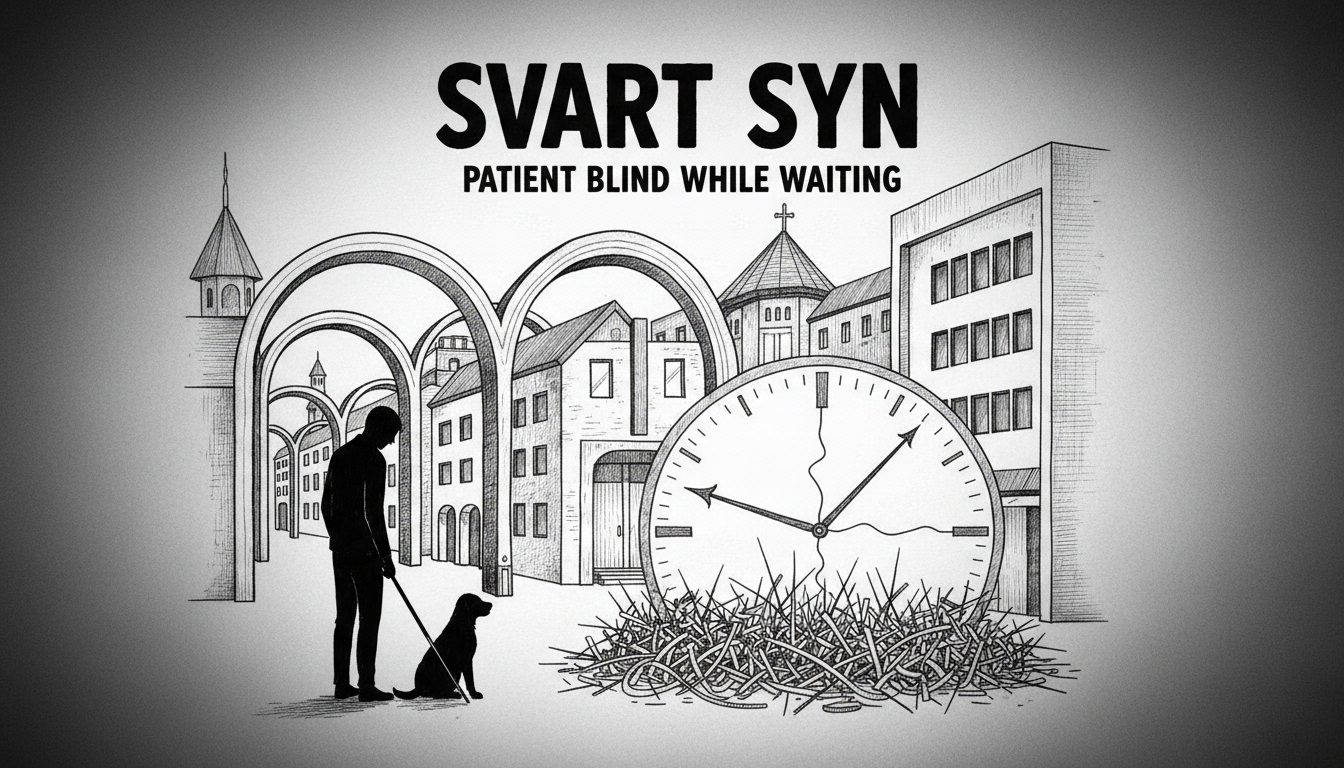A patient in southern Sweden's Kronoberg Region lost vision in both eyes during extended waits for specialized medical treatment. The individual developed a serious eye condition that initially showed positive response to local treatment. When the condition worsened, regional doctors referred the patient to a university clinic.
The referral process created dangerous delays. Nine months passed between the initial referral and the first university clinic appointment. Additional waiting periods followed for follow-up visits. The patient completely lost vision before undergoing the necessary surgical procedure.
Regional authorities filed a Lex Maria report with the Health and Social Care Inspectorate. This mandatory reporting system triggers when patients suffer serious harm in healthcare. Kronoberg Region simultaneously reviewed its referral procedures to ensure faster communication with specialist clinics.
Sweden's healthcare system faces mounting pressure from specialist care backlogs. The country divides healthcare responsibility between regional and national levels. Regional clinics handle routine care while university hospitals provide specialized treatment. This division sometimes creates coordination gaps that delay critical interventions.
The case highlights systemic challenges in Swedish healthcare access. Patients in rural regions often face longer waits for specialist care than urban residents. Kronoberg Region sits in southern Sweden's Småland province, known for its forested landscapes and scattered population centers.
Medical professionals express concern about similar cases occurring nationwide. Sweden maintains universal healthcare through tax funding, but delivery challenges persist. The government recently allocated additional resources to reduce specialist care waiting times.
What does this mean for Sweden's healthcare reputation? The country traditionally ranks high in international healthcare comparisons. Cases like this challenge that perception and prompt serious questions about system sustainability.
Regional officials now work to prevent recurrence. They aim to establish clearer communication channels with university hospitals. The goal involves creating more responsive referral pathways for time-sensitive conditions.
The patient's identity remains confidential under Swedish privacy laws. The case continues through the official review process while regional authorities implement procedural changes.

